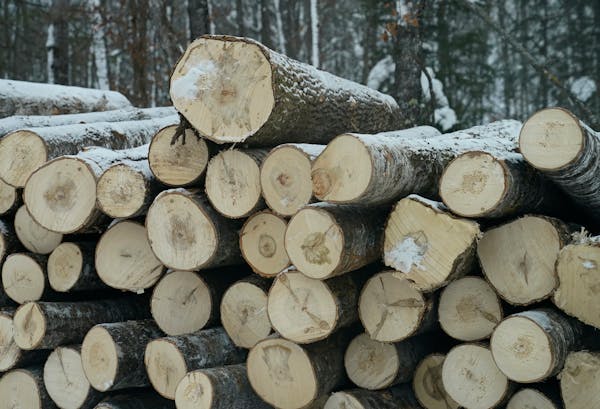The U.S. Fish and Wildlife Service has decided to unlock $21.6 million in wildlife habitat grants threatened by the Minnesota Department of Natural Resource's handling of logging contracts on public hunting lands.
In a letter this week to DNR Commissioner Sarah Strommen, Acting Regional Director Chuck Traxler of the Fish and Wildlife Service said he's confident the DNR's "future actions'' will comply with grant conditions that require any logging on state wildlife management areas and aquatic management areas to be carried out for wildlife purposes.
Two months ago, Traxler took the unprecedented step of halting the grants — a major source of DNR funding — after the state agency acknowledged that it sold commercial logging permits on federally aided hunting lands without first documenting the wildlife purposes for those sales.
Traxler's decision to release the money, derived from federal excise taxes on hunting and fishing gear, came after ongoing discussions with Strommen and other high-ranking DNR executives. The two agencies met on-site at Mille Lacs Wildlife Management Area and Whitewater Wildlife Management Area as part of the process.
The federal agency's dissatisfaction with DNR grew out of the so-called Sustainable Timber Harvest program launched by Minnesota in 2018 at the behest of commercial logging interests. Within a year, DNR's own wildlife managers began complaining to Strommen and others that the 10-year timber plan was damaging the forests they manage. The computer-driven timber sale program strips them of the flexibility they need to preserve and create various wildlife habitats, they have said.
Those sentiments were echoed again, just recently, when the DNR surveyed its own wildlife section employees. Around 90% of those who answered the internal questionnaire said they are dissatisfied with the agency's handling of logging on lands where wildlife considerations are required to come first. Their grievances were aired at a recent staff meeting, attended by Strommen, in Brainerd.
DNR Fish and Wildlife Division Director Dave Olfelt said Minnesota's all-important Game and Fish Fund would have been hurt if the federal grant money was disallowed for a prolonged period. He said the renewed flow of funds stems from ongoing talks around what information is required and what timetables should be met to ensure that all logging complies with the wildlife-first grant program.
"It took good effort on all of our parts to get there,'' Olfelt said.
The Fish and Wildlife Service said there's no record of a similar hold on grant money to any other state in the 86-year history of the so-called Pittman-Robertson and Dingell-Johnson wildlife restoration acts.
Hudson Kingston, legal director at Clean Up the River Environment (CURE), a Minnesota-based organization that works on rural environmental issues and agency accountability, said it isn't appropriate for the Fish and Wildlife Service to release the funds unless the federal agency has verified full compliance with laws and grant conditions.
Olfelt said the two agencies must still finalize the grant conditions before any timber stand can go to auction.
Said Kingston: "It is not appropriate or legal to rush to undo what was a prudent hold on mismanaged federal funds.''

Twins lose second in a row to Blue Jays as bullpen falters late

The PWHL's growth comes with a price for a Minnesota Frost team building a potential dynasty
What is the 'House settlement,' and what does it mean for the Gophers and NCAA?

Souhan: Anxiety and depression in the NFL helped inspire Lindsey Young's children's book

